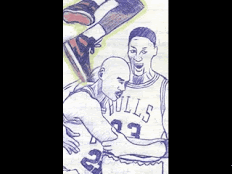Pronunciation in Lugbara has diphthong clusters and other noteworthy phonetics including the following:
aa as in bat, for example embata; c as in church, for example Candiru (which is also spelt Chandiru); dj as in jilt, for example odji, the ‘d’ is silent; ee as in emblem, for example Andree; gb as in bend, for example gbe, the ‘g’ is silent; i as in inn, for example di-i; oa as in oar, for example Adroa; oo as in old, for example ocoo, othertimes oo as in food, for example ‘doo; uu as in chew, for example cuu; z as in jean after n, for example onzi. Otherwise, most times remains z as in zebra, for example Ozu and when the first letter of a word. With this knowledge, you will be able to speak the phrases below.
Phrases
Mi ifu ngoni? (How did you wake up?/ Good morning!); Ngoni? (How are you?); [Ma] Muke! ([I’m] Fine); Ma azoru! (I’m sick!); Abiri ni ma fufu! (Hunger is killing me!/ I’m hungry!); Sawa si? (What time is it?); Sawa alu o’bitisi. (7 AM in the morning) [To tell time, you mention the number on the opposite side of the clock. Sawa iri is 8 O’clock, Sawa na is 9 O’clock, etc]; Sawa mudri drini alu ondresi (5 PM in the evening); Mi efi! (Come in!); Ife mani ‘yi! (Give me water!); Kirikiri! (Please!); Iko ma aza! (Help me!); Ine! (See!); Mi a'bua ozi si? (How much do you sell bananas?); Ajeni si? (How much [is the price]?); Ale Obangulu! (I want mashed whiteants!); Ma mu Gili Gili-a ngoni? (How do I get to Gili Gili?); Arojo ngoa? (Where is the drugshop?); Mi ru adi-i? (What is your name?); Ma ru Yoeli-i! (I’m called Joel!); Awa’di fo! (Thanks!); Ale mi ra! (I love you!); Ma enga Ombaci-a. (I’m from Ombaci.); Mi aa ngoni? (Good afternoon!); Ma mu kanisa-a. (I’m going to church.); Mi ma agi! (You are my friend!); Ma mu Ariwara-a ngoni? (How do I get to Ariwara?); Mosikiti ngwa? (Where is the mosque?); Mi ma ji Ragemu-a ra? (Can you take me to Ragem?); Iji ma Ediofe-a! (Take me to Ediofe!); Ba mucele ozi ngwa? (Where is rice sold?); Aleni ku! (I don't want!); Aje/ andru/ drusi/ drozi (Yesterday, today, tomorrow, the day after tomorrow); Ila muke! (Sleep well!)
Numbers
1. Alu,
2. Iri,
3. Na,
4. Su,
5. Towi,
6. Azia,
7. Aziri,
8. Aro,
9. Oromi,
10. Modri,
[After mastering the first 10 numbers, the rest will be easy. Just add ‘drini’ (which means ‘on top’) to show numbers after 10 and other series. Some people just shorten it to 'ni'.],
11. Modri drini alu,
12. Modri drini iri,
13. Modri drini na,
[Put ‘Kali’ (which means ‘counting stick’) before a corresponding number for 20, 30, 40, 50, 60, 70, 80 and 90 before adding 'drini'. For instance, 91 is 'Kali oromi drini alu'.],
20. Kali iri,
21. Kali iri drini alu,
22. Kali iri drini iri,
30. Kali na,
40. Kali su,
100. Turu alu [For numbers from 111, use 'drini' once, in this case Turu alu, modri drini alu.],
200. Turu iri,
1,000. Alifu alu,
1 M. Milioni alu.
29 September 2012
Subscribe to:
Comments (Atom)



